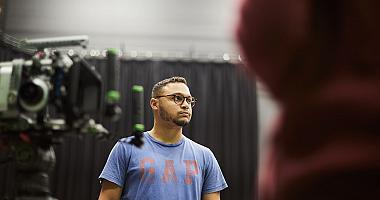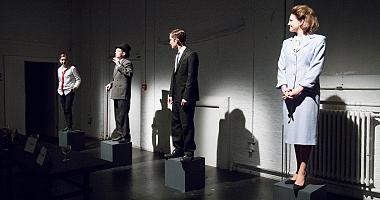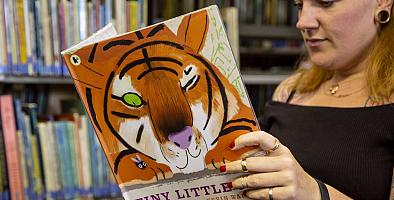Course information
Department
Length
1 year full-time or 2 years part-time
Scholarship information
Course overview
Have you got a story to tell? Or poems that you want to shape into a collection? This Masters degree will help you develop your creative writing practice. You’ll experiment with a wide variety of forms to help you discover your preferred mode of writing.
Why study MA Creative & Life Writing at Goldsmiths
- You may be writing regularly; you may be returning to it after concentrating on your career. Whatever your background, if you're serious about your writing, this postgraduate course can help you to develop your practice.
- Our students bring with them a lively range of interests, cultures and experiences. We welcome students of any age who share the drive to take their writing seriously.
- You’ll have the chance to experiment with different forms – poetry, the novel, short story and life writing - as well as to specialise in one of those areas - and you will receive expert guidance in each field. Read work by our students.
- Some seminars will be taken by visiting writers who will talk about their work, introduce you to different theories of creative writing and engage you in discussion about their writing. Recent visitors have included Ali Smith, Caryl Phillips, Claire Keegan, and Daljit Nagra.
- We host weekly readings and discussions organised by our Writers Centre, together with occasional visits from editors, literary agents and organisers of literary projects.
- The Pat Kavanagh Prize is presented annually to an outstanding graduate from the programme. The £500 prize, created in memory of the much-admired literary agent, is awarded by a team of her colleagues at United Agents. This has been the catalyst for publication by several previous winners.
Student success
Since an MA creative writing course was established at Goldsmiths, later followed by a PhD programme and the introduction of creative writing at undergraduate level, over 100 of our students have gone on to bring out books with mainstream publishers.
Notable successes include:
- Bernardine Evaristo was joint winner of the 2019 Booker Prize.
- Two of our MA graduates, Ross Raisin and Evie Wyld, were named on Granta’s list of ‘best of young British novelists’.
- Sophie Collins, Jack Underwood, Emily Berry, Richard Scott, Malika Booker, Anthony Joseph, Abigail Parry, Nick Makoha,Charlotte Shevchenko Knight, Rachel Long and Rachael Allen are among the prize-winning poets who have come through Goldsmiths.
- In 2018, the Royal Society of Literature elected 40 new fellows under the age of 40 – in effect selecting the leading young British writers today. Six of them – Ross Raisin, Evie Wyld, Lucy Caldwell, Sophie Collins, Amy Sackville, and Emily Berry – are Goldsmiths alumni. No other university creative writing programme comes close to matching that.
- Since 2016, ten of our creative writing graduates have been winners of the Eric Gregory award for poets under thirty: Sam Buchan-Watts, Alex MacDonald, Rachael Allen. Ali Lewis. Sophie Collins, Phoebe Stuckes, Susannah Dickey. Amina Jama, Kandace Siobhan-Walker, and Daniella Fearon.
- Other awards won by alumni include the John Llewellyn Rhys Prize, the Betty Trask Prize, the Sunday Times Young Writer of the Year award, the Rathbones Folio Prize, the Rooney Prize for Irish Literature, the Desmond Elliott Prize, the Authors’ Club First Novel Award, the Somerset Maugham Award, the Seamus Heaney Centre Prize, the T S Eliot Prize and the George Devine Award, as well as wins and shortlisting for the Costa Prize (in the poetry, novel and short story categories), the Encore prize, the Orange Prize for Fiction, the Orange Award for New Writers, the Dublin International IMPAC Prize, The Miles Franklin Award, the Ruth Rendell Award, The Young People’s Laureate for London, the Michael Marks Award, the Commonwealth Writers Prize, the Sunday Times EFG Private Bank Short Story Award, the Geoffrey Faber Memorial Prize, the Dylan Thomas Prize, the TS Eliot Prize, the Bridport short story award, the Guardian short story award for BAME writers, and the Forward Prize for Poetry.
Contact the department
If you have specific questions about the degree, contact Stephen Knight.





